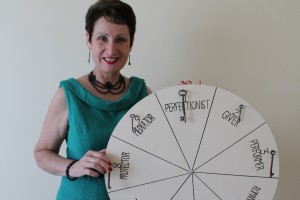 Do you get along with most people? My own experience when working with people suggests that whilst most of us get on with most people, there are always certain people that we find difficult to understand and get on with.
Do you get along with most people? My own experience when working with people suggests that whilst most of us get on with most people, there are always certain people that we find difficult to understand and get on with.
Sometimes you may struggle to understand why a person thinks the way they do, or holds a differing belief or value system to you evoking anger in you or by contrast, intimidation. Sometimes you feel irritated by a particular person or find yourself in frequent conflict or you just don’t like them for no apparent reason. Getting along with people is a skill we all need but how and where do we learn the skill?
Your family of origin is the context in which you learn how to do relationships, as you observe your parents or significant care-givers relational style. As a child, you developed your own relational style within your family context, responding to the specific stressors and challenges you experienced. If there were frequent arguments between your parents, you may have taken on the role of a mediator, prioritizing the need to keep things peaceful and settled. If your father was abusive towards your mother, you may have taken the role of protector out of the need to defend your mother. Some of us feel very isolated and abandoned as children. If that was the case for you, you may experience yourself as being different to others, having learned to live within your own imagination.
Relational styles vary.
Have you noticed that some people seem to get on with others effortlessly whilst others struggle to get on with people? Whilst your relational style worked for you as a child within your family context, as an adult you are exposed to a much broader range of relational styles that frequently challenge the way you do relationships. This becomes particularly apparent when you experience a life crisis and discover that the skills you have relied upon to relate to others, no longer work and even keep you stuck in problematic situations. It is at this stage, people often choose to see a counselling professional in order to understand themselves and others in relationship.
It was during a period of personal crisis that I became aware that I needed to understand myself at a deeper level and change the way I related to other people. At that time I was experiencing chronic depression and felt crippled by fear. I withdrew from life, seeking to protect myself from other people’s judgements and expectations, feeling inadequate and insignificant. My recovery from depression was significantly facilitated by the decision to pursue personal self-awareness and the way my relational style impacted others in relationship.
Whether you are at a time of personal life crisis and/or relationship crisis or simply want to strengthen and grow your relationships, I recommend these 9 keys (known as The Enneagram).
These 9 keys provided me with a very accurate psychological tool that helped me understand and work effectively with other people instead of being fearful of them. I have since used this tool in every area of my life; my marriage relationship, my family relationships, my personal friendships, my workplace relationships and in my work as a therapist.
These 9 keys give insight into what a particular personality type values and prides themselves on. By identifying the others personality type on the enneagram, you begin to become aware of how they function and how to initiate a relationship based on an appreciation of one another’s strengths and differences.
Here are the 9 keys to strengthen and improve your relationships:
Type 1 The Perfectionist; ‘I am right’
Type 2 The Giver; ‘I am helpful’
Type 3 The Performer; ‘I am successful’
Type 4 The Romantic; ‘I am different’
Type 5 The Observer; ‘I am knowledgeable and wise’
Type 6 The Loyal Sceptic; ‘I am loyal’
Type 7 The Epicurist; ‘I am fun’
Type 8 The Protector; ‘I am strong’
Type 9 The Mediator; ‘I am settled’
When you begin to pay closer attention to what a person is saying you will hear what a person frequently states or implies about them. Noticing what a person prides themselves on, you can start to appeal to that part of them.
For example, to get along with a Type 1, you need to allow them to feel that you value their advice by asking them what they think, listening carefully, and giving respect to what they say. Whether you agree or not, this person is more likely to support you, because you have given value to them. To get along with a Type 4 it is important to acknowledge that they are different, invite them to share their unique perspective and in particular their creativity. Give them the creative director job and they will do it with flair!
If you want to know more about these 9 keys, look out for more articles to help you to understand your self and others so that you can continue to strengthen and grow your relationships.
Do you want to strengthen and improve your relationships? Do you find it challenging to balance your study, work and personal life? Contact Colleen on 0434 337 245 or Duncan on 0434 331 243 for a FREE 10 minute consultation on how we can best help you or book online now.

Leave a Reply